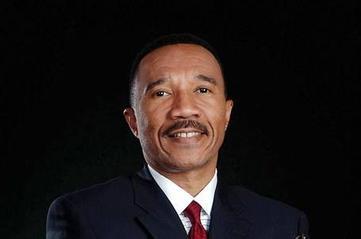[ad_1]
By Kweisi Mfume
As we take the time this week to reflect on the life, times and work of Congressman Elijah Cummings. It is important to understand the totality of him, rather than any single aspect of his being, because it was every aspect in the aggregate that made Elijah Cummings what he was. I first met Elijah in the spring of 1979. I was a talk show host at WEAA FM after shortly bringing that station on the air two years earlier. I had launched a campaign to run for the Baltimore City Council and Elijah was a young lawyer and precinct marshal, working with the democratic club headed by the late Sen. Clarence Mitchell III, former delegate and soon to be State Sen. Larry Young and Del. Lena k Lee.
The political godfather and mentor to Elijah and me at that time was the revered Congressman Parren J. Mitchell, who, along with the Reverends Vernon and Harold Dobson, Rev. Wendell Phillips, Dr. Homer Favor, Rev. Marion Bascomb, Pat Scott, Lalit Ghadia and Judge Joseph Howard, formed the most effective Black think tank in the nation, known as the “Goon Squad.” In those days, it was both the Mitchells and the Carl Murphy familiy that organized and directed the community on politics, inclusion and on how to fight for rights, both civil and political. Not to be discounted in all of this were the other forces of power on the west side of town, that being the strong grass roots organizations headed by Little Willie Adams and the late State Sen. Verda Welcome.

Elijah was being brought along and tutored by the Mitchell political club and I was being brought along and tutored by the Welcome political club. Despite those organizational allegiances Elijah and I became political buddies right away. We both were eager to find a way to change the system of prejudice that had maintained discriminatory practices in housing, education, healthcare and employment, as it worked to deny Black political power. He was attracted by my grass roots campaign to run for office against the odds, and, even though he didn’t say it, we both knew at the time, that he would soon be doing the same thing in his own way, because of his deep commitment to public service.
After I would go on later that year to defeat those odds and win a City Council seat by three votes, Elijah’s time to serve was just a couple of years away. It would be Del. Lena K. Lee from the Mitchell organization who would go on to inspire him three years later, to run for state office. He did, he was elected and he never looked back. I got elected to the Congress when Parren Mitchell decided to move back into private life, and Elijah got elected to that same seat when I decided to move on to head and help a struggling NAACP.
Although it would be chronologically correct to say that’s how Elijah got started, it would be a gross understatement of where he really began. That shaping and that beginning started in the home of Robert and Ruth Cummings where young Elijah learned the basics of life. He was taught to work hard, play by the rules, love your country, cherish your faith and to respect your elders. It was what they poured into him that was to shine through him for the rest of his life. It was that uncompromising understanding of who he was and whose he was, that people saw but rarely recognized.
I don’t know that in the 40 years that we were friends if there was ever a time that Elijah gave a speech in which he did not take time to mention his mother or father and the lessons of humility, respect and service that they gave him. I remember kneeling beside him and gripping his hand as he sat in a wheelchair just feet from his mother’s coffin at her funeral, and although you could look in his eyes and feel his enormous sense of loss, you could also sense that her spirit had entered him at that moment as he nodded and pointed to her, through his tears with a smile.
Over the last several years whenever we talked about the need for principled leadership in the Congress and how we were working to ensure educational opportunities for students, we would always eventually veer off into another conversation. It was one that had less to do with the regular business of the world and more to do with our memories as young men, our own humanity and frailty as human beings and our belief that God, the final arbiter of all things would send forth in unpredictable ways the strength our communities would need to fight their battles.
Back in the day, whenever Parren Mitchell, Elijah and myself shared a moment to reflect about ourselves we recognized that there would always be a historical kinship between the three of us. The spirit to fight for what you believe in was the way we entered politics and the way that both Parren and Elijah through their deaths, would ultimately exit. They confronted life with the courage of their convictions and confronted death with the courage of their faith.
Common law and experience teach us that politics changes people; but Elijah changed politics. He put a human face on it and he made it real; and he did it through the simple eloquence of his example. But above all, to those he knew and loved, he was simply a good man with a good heart.
He was our friend.
The Honorable Kweisi Mfume, former Congressman for the Maryland 7th District,
serves as chair of the Board of Regents of Morgan State University.
[ad_2]
Source link

